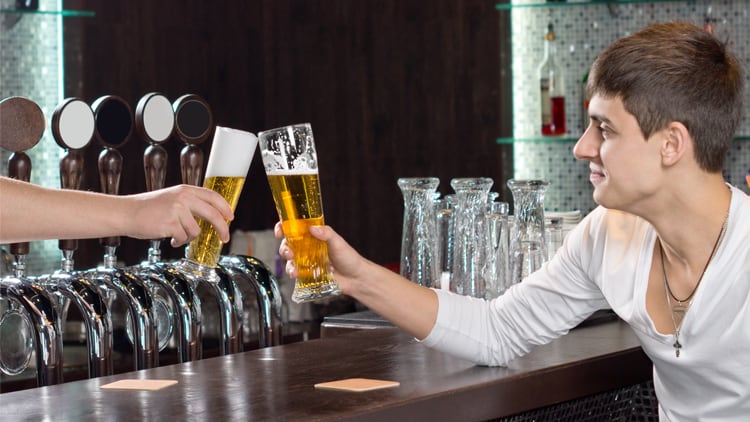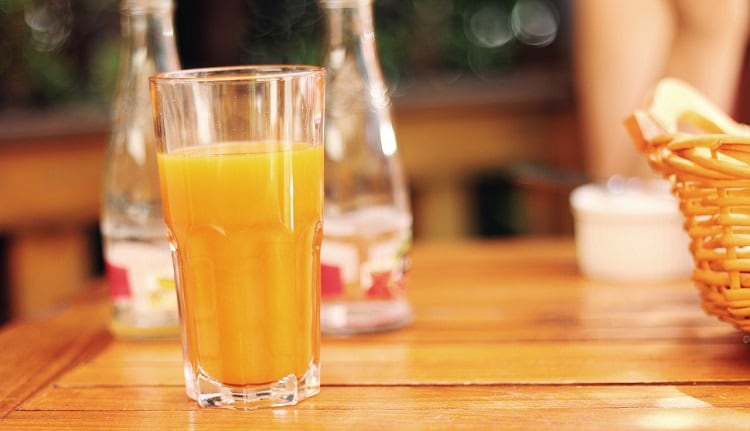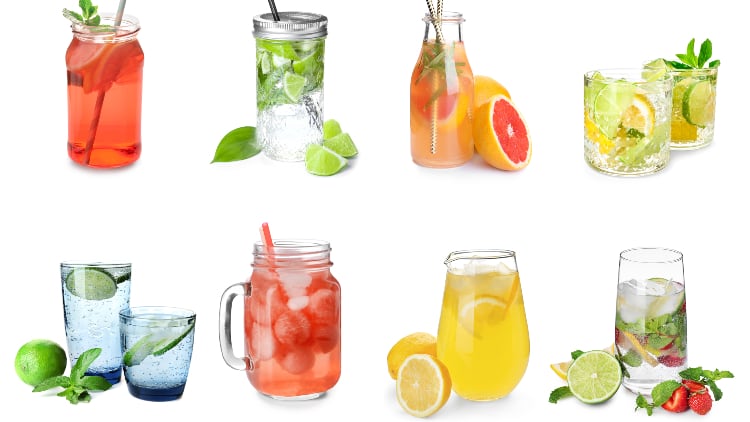Legally, under-18s can purchase alcohol-free beer in pubs but a recent report revealed a father was banned from his local JD Wetherspoon (JDW) in Cambridge after purchasing an alcohol-free cider for his 13-year-old son.
So where is the line drawn?
Alcohol-free beer does contain some alcohol – up to 0.05% ABV.
But it is for this trace in non-alcoholic beer that some pubcos feel there is a risk in blurring the lines and have, therefore, banned these sales.
Pubcos
Alcohol descriptors
Alcohol-free beer = no more than 0.05% ABV
De-alcoholised beer = no more than 0.5% ABV
Low-alcohol beer = no more than 1.2% ABV
Alcoholic beer = contains more than 1.2% ABV
Marston’s head of technical services Ruth Powell said: “It is our company policy that any drink containing any disclosable alcohol, which is for the intention of being sold as an alcohol alternative, should not be sold to or for a person under the age of 18.
“This policy protects our staff from being responsible to the serving of the drink to a minor and as a company, ensures that from a legal and moral perspective, we are acting in the most responsible way.”
However, other pubcos see serving non-alcohol products to under-18s as promoting alcohol to children.
A spokesperson for Mitchells & Butlers (M&B) said: “We also do not allow the sale of alcohol-free beer, lagers or ciders to people under the age of 18.
“This is primarily because these drinks are alcohol-free versions of an alcoholic product, and look and taste very similar to alcohol, therefore, differing from a traditional soft drink.”
On top of this, many of the alcohol-free drinks have the same labelling and branding as their full ABV alcohol so this can also cause confusion among staff.
A spokesperson for M&B continued: “In addition, operationally it is very difficult once the product has been served and decanted, for staff supervising the floor, to distinguish it from its alcoholic equivalent.”
Independent pub groups
However, multiple independent pubs view this legislation as a positive.
Uphouse Pubs representative Martin Barnes said: “I can understand reservations for the appearance of underage drinking and the potential problems that could arise from the perception of other drinkers.
“That said, the shift in recent years where pubs are seeing people drinking less, especially in the younger generations, I think pubs have to adapt.
“The pub plays a big part in the social needs of the communities within which they are. If by offering alcohol-free options to under-18s encourages them to use the pubs, then it is all for the better for the future success of pubs, in general.
“I must admit it would feel strange to serve a bottle or pint of alcohol-free beer to someone under 18 but, fundamentally, it is a soft drink – so no harm, no foul.
“What seems strange now, I'm sure will be commonplace in a few years’ time.”
Marc Bridgen, general manager of the Dog in Wingham, Kent, also shares similar views and feels it all boils down to the discretion of the parent.
He said: “As a single-site entity with a lower drinking culture than a JDW [site] for instance, it doesn't really get on radar.
“If the parents are happy and it’s within the law then who are we to start doing anything differently and make our rules ourselves.”
John Ellis, licensee of the Crown Inn, Oakengates, Shropshire, feels allowing under-18s to purchase alcohol-free beer can benefit their maturation.
Ellis said: “I believe strongly that children have to learn how to behave in adult society if they are to grow up to be responsible adults.
“I have several family groups who come in and know how to behave.
“I understand that it is not illegal for them to drink these products and, as such, it is part of the educative process of learning how to grow up.”



